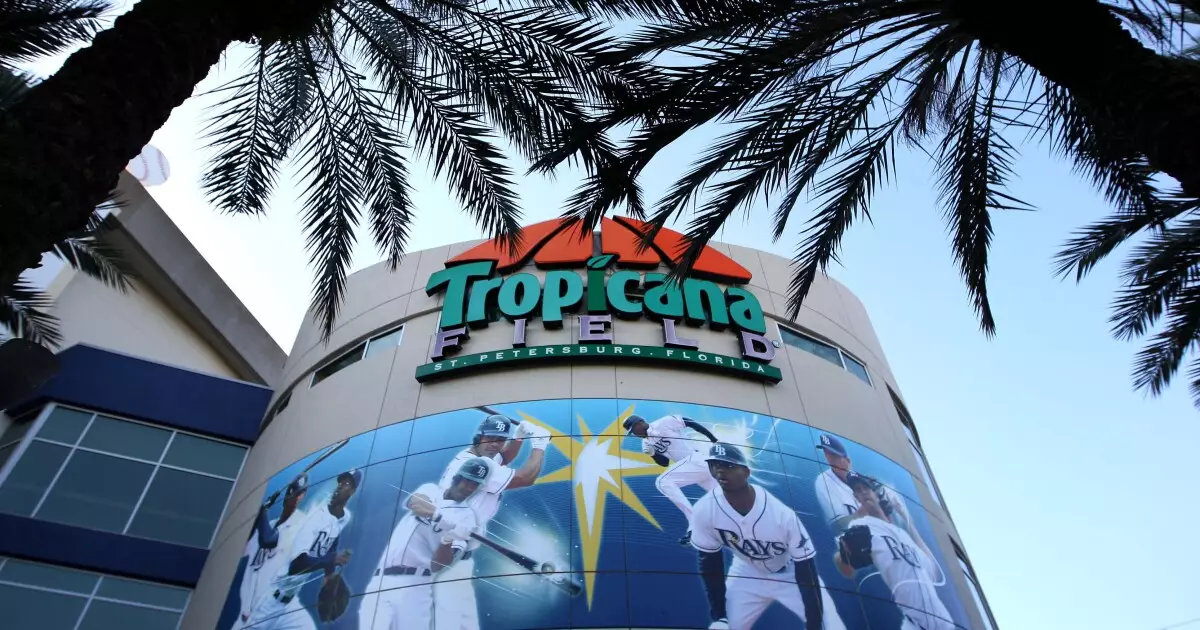The saga of the Tampa Bay Rays and their pursuit of a new stadium has taken yet another complicating turn. With the Pinellas County Commission’s recent approval of $312 million in bonds aimed at constructing a new professional baseball stadium, tensions between the team and local government officials have been reignited. This approval was supposed to signify progress; instead, it has reopened discussions about funding gaps and unmet requests for additional government assistance. The Rays have consistently expressed that delays in the bond approval process have not only postponed construction efforts but have also resulted in mounting costs that they can no longer shoulder alone.
The rhetoric from Tampa Bay Rays President Matt Silverman underscores the urgency of the situation. Following the commission’s vote, he stated, “As a result, the cost of the project has increased significantly, and we cannot absorb this increase alone.” This appeal for additional funds is a reflection of the team’s precarious position amidst rising project costs—an outcome that they attribute to the delays imposed by local governments. Silverman’s comments paint a picture of a frustrated franchise grappling with the realities of inflation and construction setbacks in pursuit of a home that meets the evolving demands of professional sports.
The commissioners in Pinellas County granted the bond approval with a cautious eye, emphasizing the conditions attached to the funds. Despite the approval, it is imperative to note that the team must adhere to several stipulations before the bond proceeds can be utilized. Specifically, the funds will be held in escrow until the Rays fulfill contractual obligations, a timeline that is crucial as the clock is ticking. Certain deadlines come into play, including a broad range of conditions that must be met by the end of March. If the team fails to act, both the stadium deal and the associated redevelopment of the Historic Gas Plant District could unravel entirely.
While the approval was a significant step, it could very easily become a double-edged sword. Concerns have been raised among commissioners, with predictions that the Rays will inevitably ask for increased financial commitment. Commissioner Chris Latvala, who has had a shifting stance on the issue, speculated about the potential for owner Stuart Sternberg to push for more funds post-approval. Latvala’s assertion reflects a broader sentiment that the team may be leveraging its position to extract further concessions, a strategy that is fraught with risk and could ultimately alienate public officials and fans alike.
The Rays’ situation has become even more precarious due to the adverse impact of a recent hurricane that inflicted damage upon Tropicana Field, further complicating the timeline for transitioning to a new venue. As repairs are expected to come from multiple funding sources, one wonders how this may influence negotiations with county officials, who are already juggling the complexities of a strained relationship with the team.
Amidst this turmoil, local leaders are making it clear that any attempts by the Rays to renegotiate terms may be met with resistance. Commissioner René Flowers, despite supporting the bond issuance, has set the expectation that the onus is now on the Rays to demonstrate accountability and meet pre-established commitments. St. Petersburg Mayor Ken Welch has echoed this sentiment, affirming that no additional funds would be provided beyond the already sanctioned $333.5 million. This lack of flexibility from city officials serves as a strong warning to the franchise about the limits of local support.
The stakes have never been higher for Tampa Bay. With baseball’s future in the market increasingly uncertain, failure to move forward with the stadium project could result in devastating consequences for the Rays, possibly even jeopardizing their long-term viability in the region. Local officials, including Commissioner Dave Eggers, have expressed discontent with the team’s behavior and carefully tread between fulfilling past commitments and expecting the Rays to demonstrate good faith.
As events unfold, one cannot ignore the palpable tension between the Rays and the government. Both parties are at a crossroads, where collaboration is essential but increasingly complicated by differing priorities and public expectations. With numerous hurdles still to overcome, it remains to be seen whether the Rays will achieve their much-desired home, or if the future of baseball in Tampa Bay is destined for uncertainty.


Leave a Reply